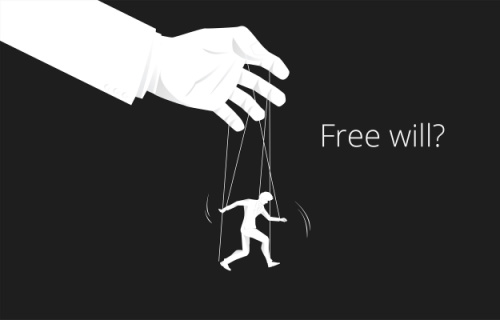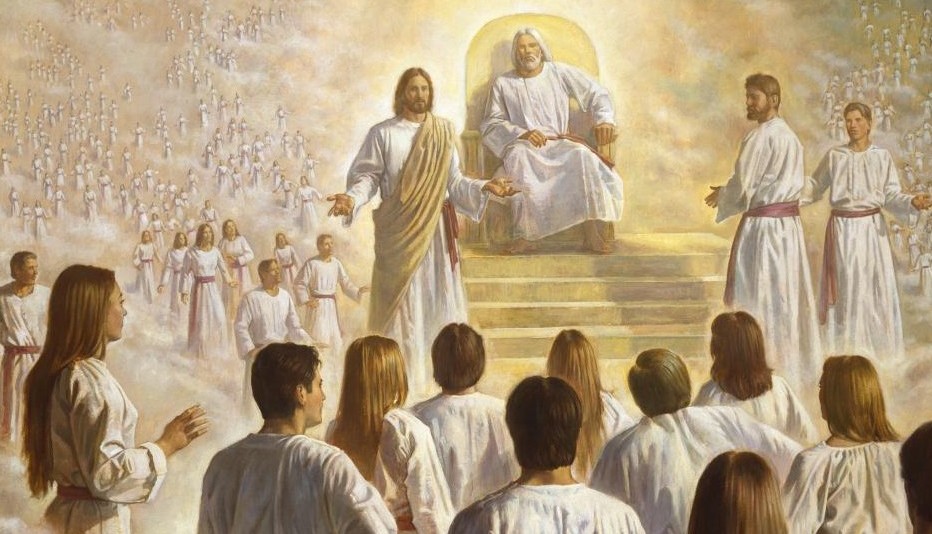Question
Dear Gramps,
If God is all-knowing and all-powerful, how do we have free will? That seems to contradict itself. If he is all powerful and all knowing, then why would he be making/allowing people to live their life in a way that would derail them from the presence of God? Would he not want all his children to return home to him? I know the answer to that is, yes of course he does. And I understand we have agency and he wants us to learn how to CHOOSE to follow him. How is that really our own?
Haylee
Answer
Haylee,
Well, looks like there are a few questions under the umbrella of “free will” in relation to our moral agency and God’s foreknowledge and power (omniscience and omnipotence). The answers to your questions revolve around and intertwine the following doctrines within the gospel of Jesus Christ:
1. Moral Agency
2. God’s Foreknowledge
3. God’s Work and Glory
In a devotional talk given by Elder Todd D. Christofferson he provided three elements necessary for us to have moral agency:
1. “First, there must be alternatives to choose among.”
2. “Second, for us to have agency, we must not only have alternatives but we must also know that they exist and what they are.”
3. “Third, after the existence of choices and a knowledge of choices, is the next element of agency: the freedom to make choices.”
Moral agency is the most important doctrine in the gospel of Jesus Christ, and in order for our agency (the ability to act for ourselves and not to be acted upon) to remain intact we must be able to choose between good and evil, vice and virtue, love and hate, and many more opposites. If our agency is limited by the power or love of God, then we no longer have moral agency. If we no longer have moral agency we can learn from the Book of Mormon that righteousness could not be brought to pass neither wickedness nor holiness. And if these things are not, then the plan of God would become frustrated (2 Nephi 2:11-16), and scripture tells us then there would be no God if moral agency did not exist.
Our moral agency does exist, and there is a loving, merciful, all powerful, and all knowing God — God the Father and his Son Jesus Christ — and they are one. As to your first question, how does free will exist if God knows all? The easy answer is simple, simply knowing an outcome doesn’t negate the possibility of the other outcome. An easy example can be provided from a mortal imperfect father who doesn’t know all things but knows enough about his child. As a young father, with a young son, I could easily tell which toy my son liked most. If I were to place his favorite toy in front of him, and placed another toy in front of him, does my knowledge of which toy he will choose destroy his free will or moral agency? No. My knowledge of his favorite toy doesn’t negate the opposition of the other toy and which he will choose. I simply only know, but do not determine his choice. His own desires and wants determine his choice. That should be sufficient for the first question.
Let’s review the second question, “If he is all powerful and all knowing, then why would he be making/allowing people to live their life in a way that would derail them from the presence of God?”
This is tough because no matter what explanation a person gives it can lead to more questions. This is the reality of having an imperfect knowledge; however, the answer that I can give is simply — love or charity. The reason why is because he loves us, and would do nothing that would inhibit our moral agency because he loves us. If God were to derail our moral agency, by any means, then he would have broken laws, eternal laws, which he will never do because he is perfect. This is why faith is so important also in the gospel of Jesus Christ. The exercising of our faith is how God can fully intervene in our life without destroying our moral agency.
This is why I love the following verses of scripture:
1. 1 Corinthians 10:13, “There hath no temptation taken you but such as is common to man: but God is faithful, who will not suffer you to be tempted above that ye are able; but will with the temptation also make a way to escape, that ye may be able to bear it.”
2. 2 Nephi 26:33, “For none of these iniquities come of the Lord; for he doeth that which is good among the children of men; and he doeth nothing save it be plain unto the children of men; and he inviteth them all to come unto him and partake of his goodness; and he denieth none that come unto him, black and white, bond and free, male and female; and he remembereth the heathen; and all are alike unto God, both Jew and Gentile.”
The first verse of scripture let us know that God has provided a way through all temptation if we but heed his voice and commandments. The outcome of our eternal progression is solely and directly influenced by our love for God and his plan. Each of us has the opportunity to show God the measure of our hearts and what we value and treasure the most. If we treasure the Lord then we will find the path provided so that we are not tempted above what we can bear. If we treasure the world and its offerings, then we will find ourselves in harder situations, particularly the final judgement.
The second verse just wraps up what I originally said about love. The reason is because he loves us, and he would never do anything save it be for our benefit. Our imperfect knowledge doesn’t change this. As we grow in more knowledge, as we accept more light and truth (the glory of God), what was once confusing will be made clearer and clearer.
If you are unfamiliar with the story told of Enoch and the Lord in the Pearl of Great Price I would recommend reading it slowly, carefully, and with a desire to learn. The same desire that Nephi had when he desired to know more about the visions of his father Lehi. At one point in Moses chapter 7, Enoch sees the Lord weeping and asks the Lord the following question:
“And Enoch said unto the Lord: How is it that thou canst weep, seeing thou art holy, and from all eternity to all eternity?”
I find it very interesting, that at some point the knowledge was lost (or not given yet) that God had the ability to cry and to weep. Enoch conflated Holiness with having no tears. But his question to some degree answers your question with the Lord’s answer:
“The Lord said unto Enoch: Behold these thy brethren; they are the workmanship of mine own hands, and I gave unto them their knowledge, in the day I created them; and in the Garden of Eden, gave I unto man his agency;
“And unto thy brethren have I said, and also given commandment, that they should love one another, and that they should choose me, their Father; but behold, they are without affection, and they hate their own blood;”
That despite the knowledge he provided our forefathers. That despite the wisdom they had received from the Lord and his servants the children of men still chose to hate and to war rather than love one another and to “choose” him, their Father. Can we really blame God for a glorious plan where we have the moral agency to choose and we choose evil despite knowing the good? No, we can’t! And one day, everyone who lived upon this earth will humbly bow and proclaim as Nephi said, “Thy ways are just.”
Gramps







